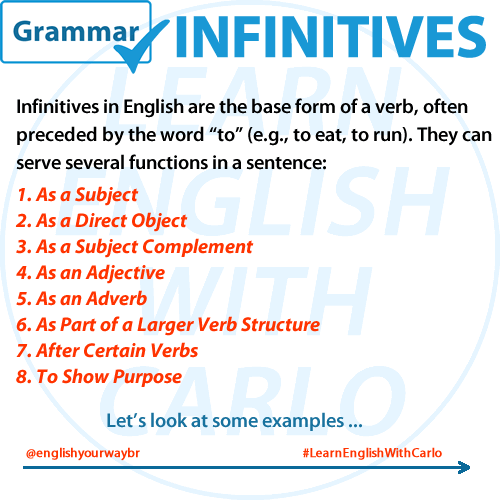
Infinitives in English are the base form of a verb, often preceded by the word “to” (e.g., to eat, to run). They can serve several functions in a sentence:
1. As a Subject:
- To learn a new language is challenging.
- Here, the infinitive phrase to learn a new language acts as the subject of the sentence.
2. As a Direct Object:
- She wants to travel the world.
- The infinitive to travel is the direct object of the verb wants.
3. As a Subject Complement:
- Her goal is to become a doctor.
- The infinitive phrase to become a doctor completes the subject Her goal by telling us what the goal is.
4. As an Adjective:
- I have a lot of work to do.
- The infinitive to do modifies the noun work by describing what kind of work it is.
5. As an Adverb:
- He came to help us.
- The infinitive to help explains why he came, acting as an adverb modifying the verb came.
6. As Part of a Larger Verb Structure:
- You have to finish your homework.
- The infinitive to finish is part of the verb phrase have to finish.
7. After Certain Verbs:
- Certain verbs are often followed by infinitives, such as decide, plan, expect, hope, need, agree, and more.
- They decided to leave early.
8. To Show Purpose:
- She went to the store to buy groceries.
- The infinitive to buy explains the purpose of her going to the store.
